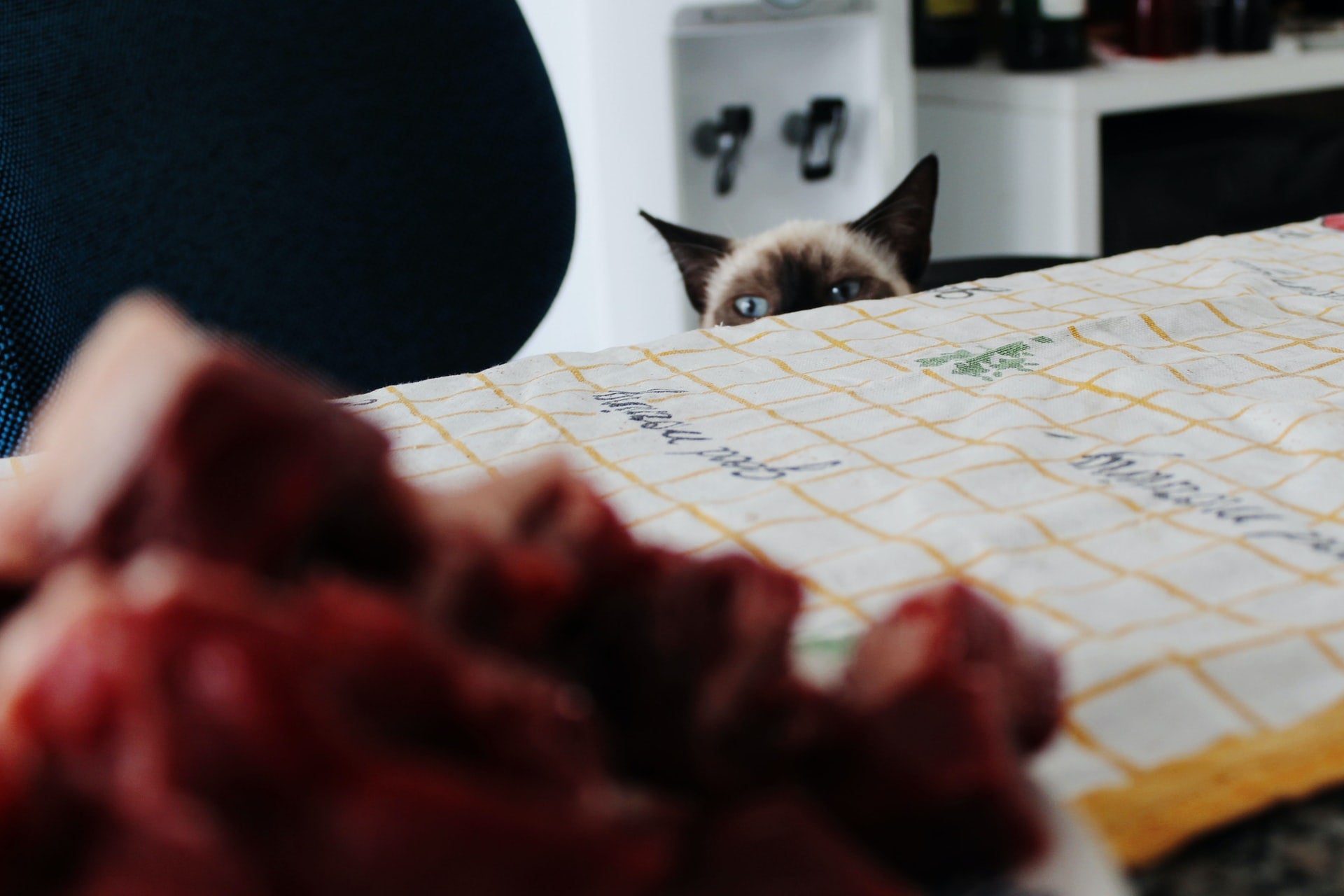From choosing the best scratchers and toys to offering plenty of pampering, we all want the best for our pets. Of course, in order to help your cat live her best life, you’ll need to prioritize one of her favorite things: food.
Protein is a crucial part of every animal’s diet, with cats being no exception. In fact, cats are obligate carnivores, meaning that they need to eat a diet packed with meat-based protein.
Read on to learn all about protein for cats, including how much and what types of protein are best for your feline friend.
How Much Protein Do Cats Need?
Because dogs are omnivores and cats are carnivores, cats require significantly more protein than their canine counterparts. Your kitty is designed to eat meat. After all, think about the types of things wild cats eat: mice, rabbits, birds, insects, frogs, and reptiles (yuck).
That said, this doesn’t mean your cat’s diet has to purely consist of meat, though she shouldn’t take on a vegan or vegetarian diet. She just needs a balanced diet, with nutrition requirements including water, vitamins and minerals, protein, fat, and carbohydrates.
Protein should make up about 26% of your adult cat’s diet (compared to 12% for dogs and 8% for humans). This is especially important because your kitty’s body doesn’t produce enough amino acids on its own, so she needs to obtain them—along with certain vitamins like niacin and vitamins A and D—from animal proteins.
If your cat doesn’t get enough protein from her food, her body will begin breaking down its own muscle tissue in order to compensate for the deficiency.
Signs of protein deficiencies in cats include:
- Weight loss
- Muscle loss
- Digestive issues
- Weakness
- Hair loss
- Difficulty breathing
Fortunately, if your cat’s commercial food meets Association of American Feed Control Officials (AAFCO) standards, she’s probably getting enough protein. Of course, if you have any concerns about your cat’s diet and/or health, it’s always a good idea to talk to your vet.
Is a High Protein Diet Good for Cats?
For the average healthy cat, more protein generally isn’t harmful; it doesn’t necessarily provide added health benefits, either. Typically, the excess protein will just be broken down and eliminated through the urine.
That said, there are some cases where a high protein diet is a good idea. Protein, fat, and carbohydrates are all used as energy sources—if your cat needs to reduce her fat or carbohydrate intake, she’ll need to consume more protein in order to meet her daily calorie requirement.
High protein diets are most common in cats who need to lose weight or are experiencing health issues that contribute to muscle loss. High protein cat food is also recommended for older cats. In fact, cats over the age of 12 may need as much as 50% of their food to consist of animal protein.
It’s important to note that there are some cases where excess protein can exacerbate some health conditions. If you have any questions or concerns about the food you’re feeding to your cat, we recommend consulting your vet for a personalized meal plan.

What is the Best Protein for Cats?
Not all protein is created equal… and neither are all cats! Finding the best protein for your feline may require some trial and error, as some cats can be incredibly picky about their food. You’ll also want to be wary of any food allergies, too.
Ultimately, you should always opt for a high-quality, digestible, animal-based protein for your cat. Some common meat-based protein options include:
-
Poultry—chicken, turkey, and duck. Cats instinctively love bird meat; if you’ve ever been gifted a bird that your outdoor cat decided to hunt, you know what we mean.
-
Beef—this is an affordable option for anyone who prepares a raw cat food diet at home, with ground beef being the easiest to prepare.
-
Pork—this is another good option for cats; just make sure to avoid ham and bacon due to their high sodium levels.
-
Lamb—this is an excellent source of protein for cats, but it’s not quite as budget-friendly as other options.
- Fish—while cats can eat just about any fish, it’s best served as a treat rather than a primary source of protein. Canned fish can have lots of sodium, so something like plain cooked salmon is generally a better option.
While plant protein can be beneficial and supplemental to your cat, it should never be your cat’s primary source of protein.
When choosing commercial cat foods, look for labels that clearly list the protein source (for example: “chicken” rather than “poultry meal”). The first five ingredients on the label make up the bulk of the food, so you’ll want to check that the animal protein source is listed first.
Promote healthy digestion with PetHonesty’s Digestive Probiotics+ Powder for Cats. This chicken and fish flavored powder is made with natural ingredients for digestive and immune support. Simple scoop some powder onto your kitty’s protein-packed food for health benefits!
Sources:
https://vetnutrition.tufts.edu/2019/12/how-much-protein-should-my-pet-get/
https://www.petmd.com/cat/nutrition/do-cats-need-high-protein-cat-food
https://petkeen.com/protein-sources-for-cats/
https://www.hillspet.com/cat-care/nutrition-feeding/cat-food-protein-importance













